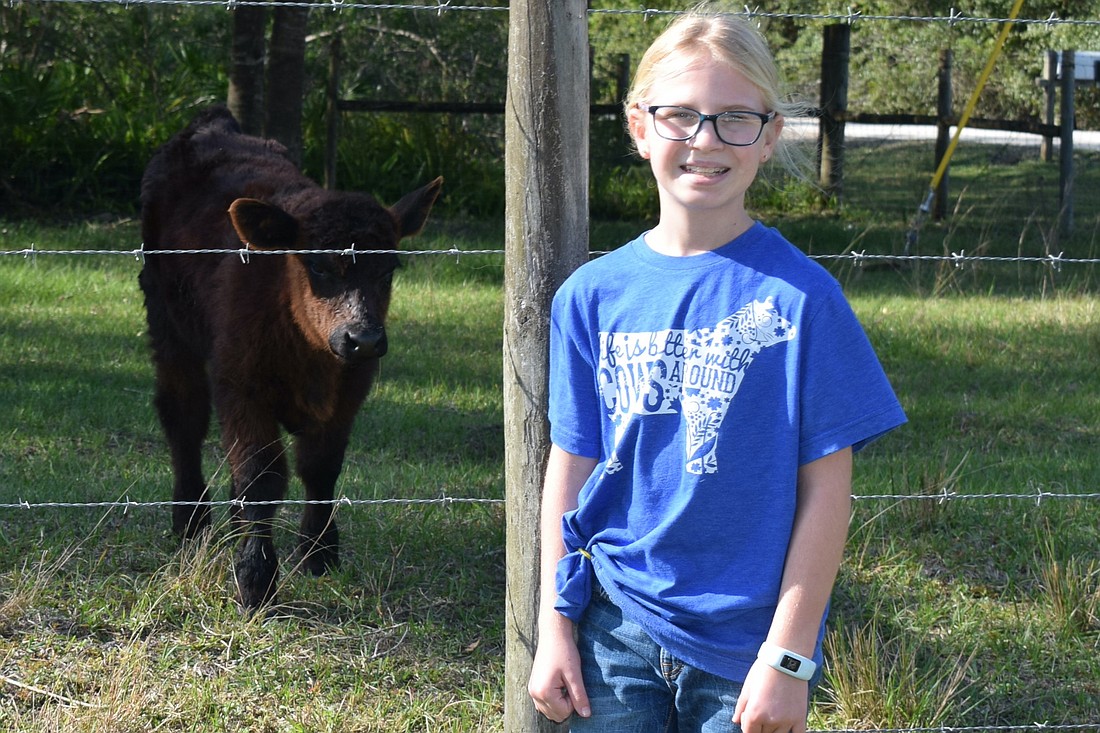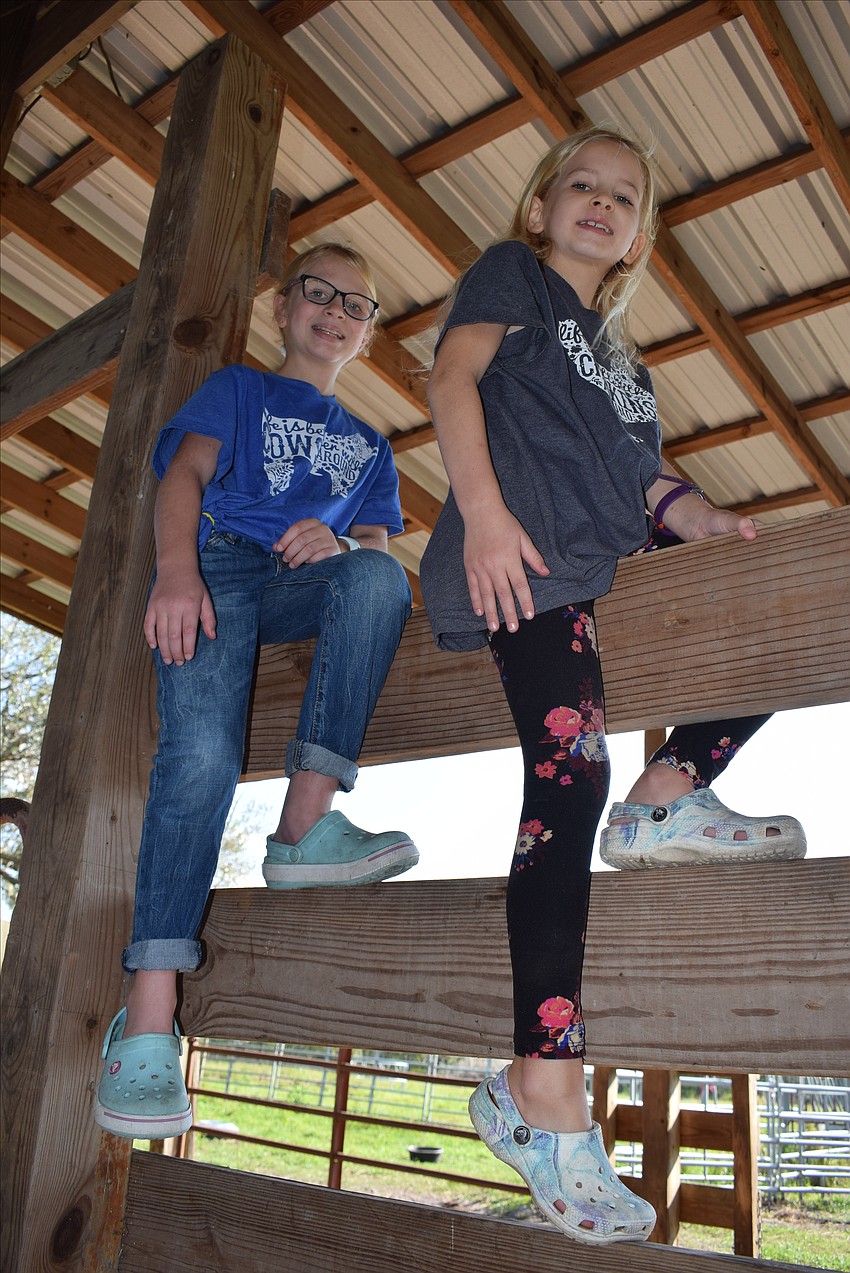- April 4, 2025
-
-
Loading

It was a lesson in farming I received shortly after graduating from high school.
OK, it was a long time ago.
After a night of drinking, a few friends and I crashed at my house about 4 a.m.
Ninety minutes later, I heard some footsteps. One of my friends was dressed and headed for the front door.
I hardly could raise my head, and he was on his way to the barn to milk cows. I shut my eyes.
It was the farmers' code that you could party until you drop as long as you showed up to work in the morning.
Farming is not easy.
It was just a reminder for me, since I grew up in a dairy farming region of New York. I knew. Those who didn't live on the farms always could make a few dollars by working on them, at times. That was nice, once in a while.

Every day? Forget about it.
Farming, or ranching, as a lifestyle was something that needed to be in your blood. And even those born into it were no lock to follow in those footsteps when they got older. Many would escape such hard work after graduating high school.
Others followed the family path, thank goodness. We need farms. We need ranches. We need food.
Unfortunately, as the years have passed, the number of farms and ranches in the U.S. has declined. What makes that alarming is the steady growth in population.
The number of farms in the U.S. peaked in 1935 at 6.8 million, according to the United States Department of Agriculture. The sharp decline that followed made sense since the country shifted out of a self-sufficiency that we never would see again.
Since the 1970s, the USDA reports that the number of farms has continued to dwindle, but very slowly, hitting 2.01 million farms in 2021. Any decline is worrisome, though, because the population continues to rise.
Farms are, indeed, bigger to handle the need, but the number of farmers continues to decrease. Who is going to fill those shoes?
Certainly, our evolution in technology and machinery has made up for the drop in farms. But the loss of farmers, and ranchers, affects us in a different way. When it comes to agricultural issues, who is pressing our legislators to protect our farms and ranches?
On a sparkling December morning, 9-year-old Lily Wolfe was tending to her two rabbits, Smokey and Jack, behind her parents' Myakka City home. Lily was coming off a win for showmanship in the Manatee County 4-H Youth Rabbit Show Dec. 3 with Smokey, a Holland Lop.
She is now preparing the two — Jack is a Himalayan — for the Manatee County Fair, which runs from Jan. 12-22. It's a big deal for her, and other 4-H and Future Farmers of America members in the county.
Lily also will be showing two heifers, including the aptly-named Valentine, who already has had success with Lily in various shows.
Lily was joined by her sister, Addy, who at 7 isn't old enough to show her rabbit — Honey, a Holland lop — at the fair. Next year, though, she will be ready when she becomes eligible.
The girls' mom, Laura Wolfe, explains that her husband, Craig Wolfe, is an eighth generation cattleman. However, raising cattle these days for the family is more of a hobby. They have five cattle on their property, including the two heifers Lily will show at the fair.
While agriculture is not their occupation, it is a love. As so, they want to teach their kids a healthy appreciation for farming and ranching. Being involved in 4-H and FFA is important to that goal.
"I think people need to know there are real people taking care of the animals," Laura Wolfe said. "And that means all the time, whether or not it is raining, or during a hurricane. We are so far removed from where our food comes from."
If putting together that foundation eventually leads one of their kids down an agricultural path, that's a dividend.
Laura Wolfe says she definitely could see Lily owning a ranch.
Lily, who was holding Smokey, agreed. "I see myself owning animals," she said.
Whether or not kids are interested in becoming ranchers or farmers, Laura Wolfe loves to see them involved in 4-H or FFA.
"No. 1, it teaches then about agriculture, about animals, and about livestock," she said. "It teaches then where they all come from. And they learn the responsibility of taking care of them, feeding them, making sure they have clean water, and keeping records."
Lily's showmanship win with Smokey was an example of more lessons well learned. She has to memorize her presentation, and she has to look judges in the eye while giving it. She has to sharpen her public speaking abilities.
To get the rabbits so they can "pose" in front of the judges and not go nutty, she needs to handle them for 30 minutes to an hour each day. It's a lot of responsibility, but Lily said she likes doing it.
She also has to stay positive when things go off the rails. Smokey started the last event a bit skittish, and actually nipped Lily's neck at the beginning of the competition. Lily never blinked, so Smokey calmed down. They finished first.
Lily "scrunched" Smokey, showing off his pose. He didn't seem to mind.
She then said part of the credit for Smokey's calm demeanor should go to the breeder.
The breeder in this case happens to be her grandma, Debbie Bostrom. Since grandma is involved, she gets to spend more time with Lily and Addy, and that's another bonus.
Showing the heifers involves even more responsibility, but Lily is up to the challenge.
"I like my animals," she said. "And Valentine is so sweet."
Right after she was born, Valentine, an Angus Maine Anjou, was in the pasture with other cows when Laura Wolfe found her with a broken leg. A yearling heifer was with her and that heifer was known to be mean, and most likely stomped the baby cow. Laura and Craig got rid of that heifer while putting a big splint on Valentine, who came back to win a first place in last year's fair.
Lily's other heifer, Orchid, is a Brangus who was born in March.
Lily has spent the last months halter breaking Orchid and walking both heifers in circles. She needs to get them to hold their heads high for the judges while being still.
That can be difficult.
"Orchid is a little spitfire," Laura Wolfe said.
And so is Lily, who just might be the rancher or farmer we all need in our future. If she is, we can say it started with a bunny.